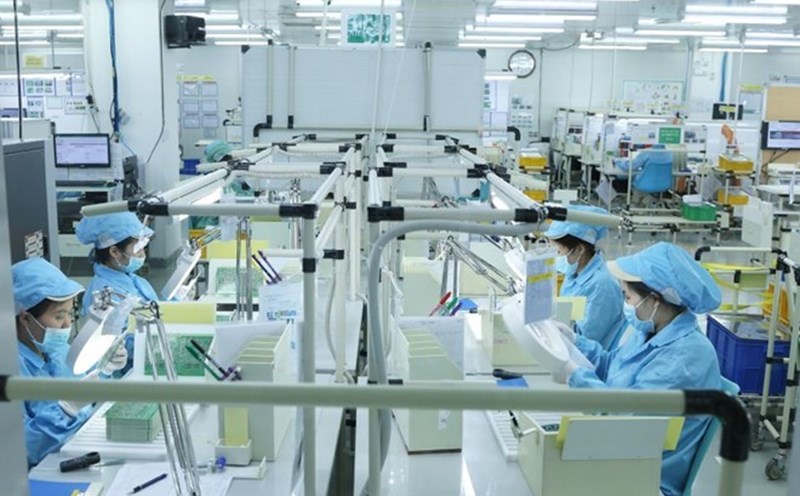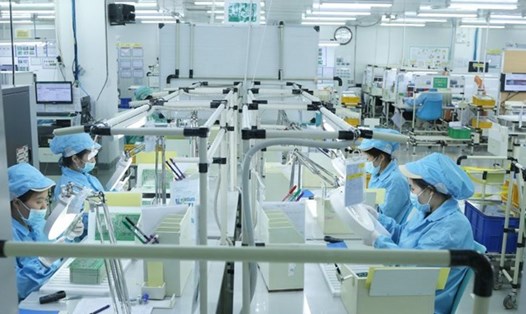Lao Dong reporter had a conversation with Ms. Do Thi Thuy Huong - Member of the Executive Committee of Vietnam Electronics Enterprises Association (VEIA), Vice President of Vietnam Supporting Industries Association - about the opportunities and challenges of the electronics industry.

Madam, what are the opportunities and potentials of the Vietnamese electronics industry at present?
- In the past 2 years, especially in 2024, the shift in Vietnam's supply chain has become increasingly evident. Vietnam has continuously welcomed investment capital flows in production, assembly and component supply. With its special geographical location, abundant labor resources and increasingly improved business environment, Vietnam has become an important base for many Chinese companies when expanding abroad.
Many large, world-famous technology companies and corporations are proactively exploring conditions and opportunities to study the possibility of investing in new projects in Vietnam. Major electronics companies that have invested in Vietnam such as Samsung, LG, Intel, etc. have also committed to expanding production. This is an unprecedented potential and opportunity to help Vietnam break through and accelerate in the electronics industry.
According to the General Statistics Office, after 9 months of 2024, electronic goods, computers and components exported 52.8 billion USD, imported 79.1 billion USD, the total export and import value reached 131.9 billion USD. With the achieved import value and the current high growth rate, there is every reason to hope that the import turnover of electronic goods, computers and components will be the first item in history to reach an import value of 100 billion USD in 2024.
What difficulties and challenges are domestic electronics enterprises facing in participating in the supply chain, madam?
- In the world technology map, Vietnam ranks 5th in exporting computers and components and 2nd in exporting mobile phones. However, in the industry supply chain, Vietnamese enterprises are at the bottom - the production stage with low added value. When Vietnamese enterprises have orders, they are also the most "stubborn" orders, with stricter payment terms and payment requirements.
Vietnamese enterprises are in a passive and disadvantaged position in negotiating orders with large partners due to incompatibility in technology scale, production management capacity as well as capital and investment scale. Therefore, Vietnamese enterprises participate in the supply chain with an unstable and precarious order position, even being squeezed for orders.
In particular, businesses also face great challenges with fierce competition in the domestic market. Businesses from neighboring countries such as China, Korea, Thailand, Malaysia, etc. when coming to Vietnam all have better production scale, management capacity, and potential compared to domestic businesses. This forces domestic electronics businesses to transform.
Madam, in the coming time, what additional support policies do e-businesses need from the Government to accelerate development and enhance competitiveness?
- First of all, we really hope that the Government's support policies that are currently available will not only "remain on paper" but will soon come into life, becoming realistic to help businesses access easily. It is necessary to pay attention to investment, consider preferential support for businesses in the stages of research, product testing and trade promotion programs.
Electronic enterprises face many difficulties, especially some regulations on import and export barriers. Sometimes there are sudden changes, causing many enterprises to struggle and disrupt their export sources. This is one of the difficulties that the Association, together with other manufacturing industry associations, has proposed to the Ministry of Finance and the General Department of Customs and has been listened to.
Thanks for sharing!











